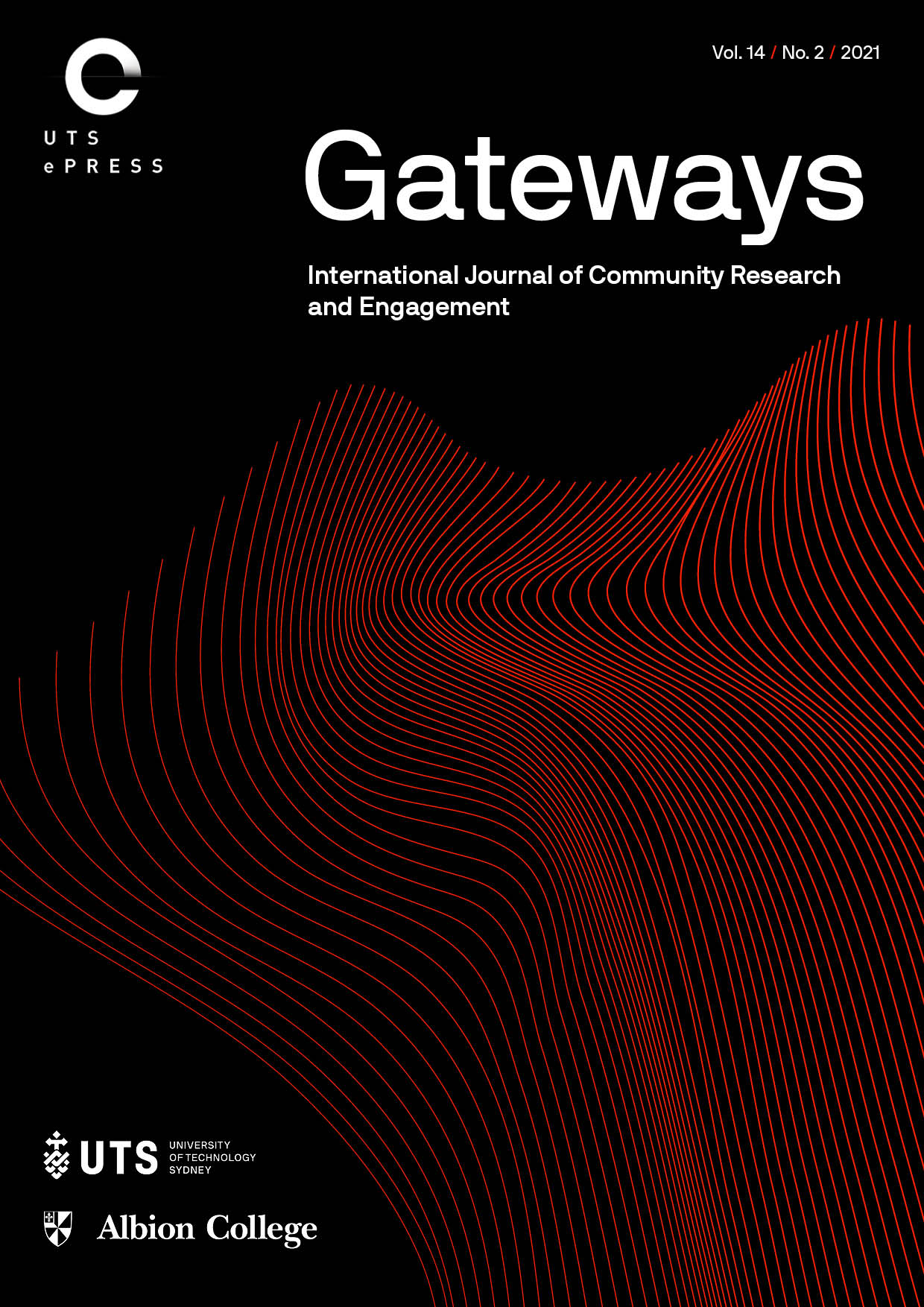Considering Power in Community-Based Research: Shifting Toward New Pedagogical Approaches with a 'Public Work for Public Things' Framework
Main Article Content
Abstract
One of the fundamental questions of power in the pedagogy of community-based research (CBR) is who gets to decide what is research worthy and what is the focus of CBR questions? The reality of the power imbalance in community-based research and learning is often reflective of a systemic disengagement with the broader community. Even when instructors and administrators are intentional in how they solicit feedback or think through the impact of their work, they may not know the neighbourhood. Prioritising the voice of community partners does not provide a simple solution, as the individuals we work with to organise community-based learning opportunities may not be residents of the neighbourhood.
This article adopts a theory-building approach to this crucial question. Building on the work of Boyte (2014) and Honig (2017), community-based research is reoriented as ‘public work for public things’ (Haarman 2020). After establishing the ‘public work for public things’ framework, the article explores how this new framework impacts collaborative research by addressing the power differential and creating new lines of inquiry – specifically the practice of ‘elicitation of concerns’. Through the lens of critical service-learning pedagogy (Mitchell 2008) and a practitioner-scholar framework (Lytle 2008; Ravitch 2013; Salipante & Aram 2003), we then interrogate two community-based research courses we have recently taught, examining how a ‘public work for public things’ approach would have altered the course and its methods.
Article Details
Issue
Section
Authors who submit articles to this journal from 31st March 2014 for publication, agree to the following terms:
a) Authors retain copyright and grant the journal right of first publication with the work simultaneously licensed under a Creative Commons Attribution License that allows others to share and adapt the work with an acknowledgement of the work's authorship and initial publication in this journal.
b) Authors are able to enter into separate, additional contractual arrangements for the non-exclusive distribution of the journal's published version of the work (e.g., post it to an institutional repository or publish it in a book), with an acknowledgement of its initial publication in this journal.
c) Authors are permitted and encouraged to post their work online (e.g., in institutional repositories or on their website) prior to and during the submission process, as it can lead to productive exchanges, as well as earlier and greater citation of published work (See The Open Access Citation Advantage Service). Where authors include such a work in an institutional repository or on their website (ie. a copy of a work which has been published in a UTS ePRESS journal, or a pre-print or post-print version of that work), we request that they include a statement that acknowledges the UTS ePRESS publication including the name of the journal, the volume number and a web-link to the journal item.
d) Authors should be aware that the Creative Commons Attribution (CC-BY) License permits readers to share (copy and redistribute the work in any medium or format) and adapt (remix, transform, and build upon the work) for any purpose, even commercially, provided they also give appropriate credit to the work, provide a link to the license, and indicate if changes were made. They may do these things in any reasonable manner, but not in any way that suggests you or your publisher endorses their use.
For Volume 6 (2013) and before, the following copyright applied:
Articles published by UTSePress are protected by copyright which is retained by the authors who assert their moral rights. Authors control translation and reproduction rights to their works published by UTSePress. UTSePress publications are copyright and all rights are reserved worldwide. Downloads of specific portions of them are permitted for personal use only, not for commercial use or resale. Permissions to reprint or use any materials should be directed to UTSePress.
